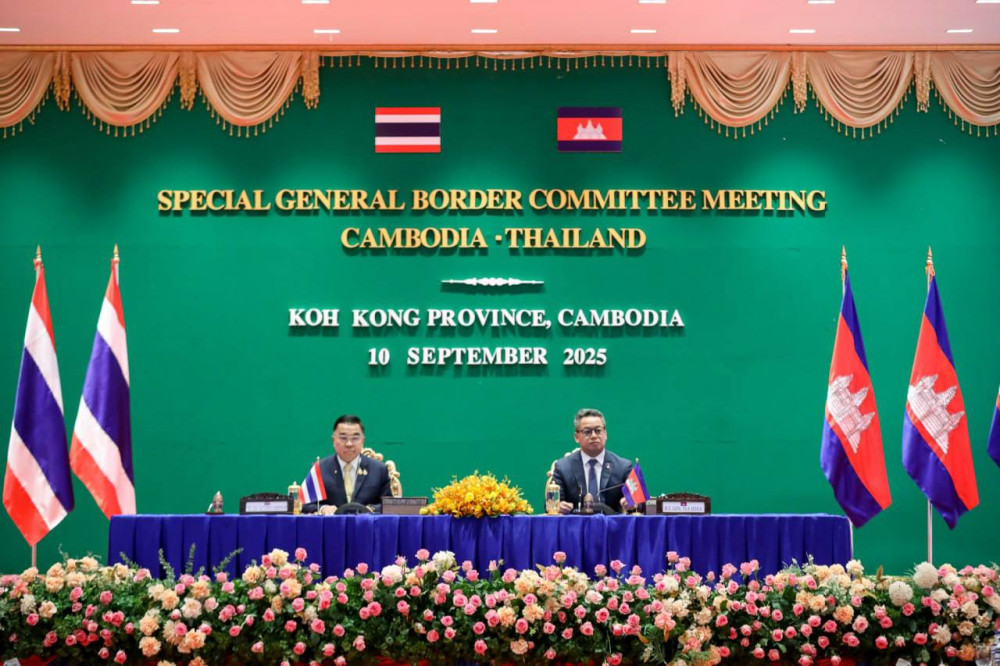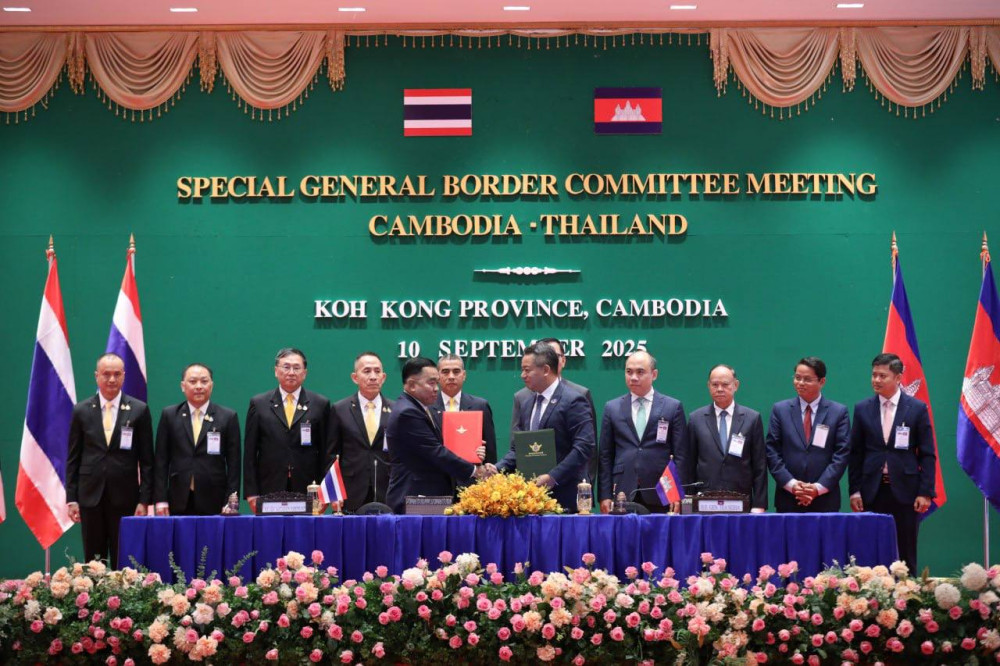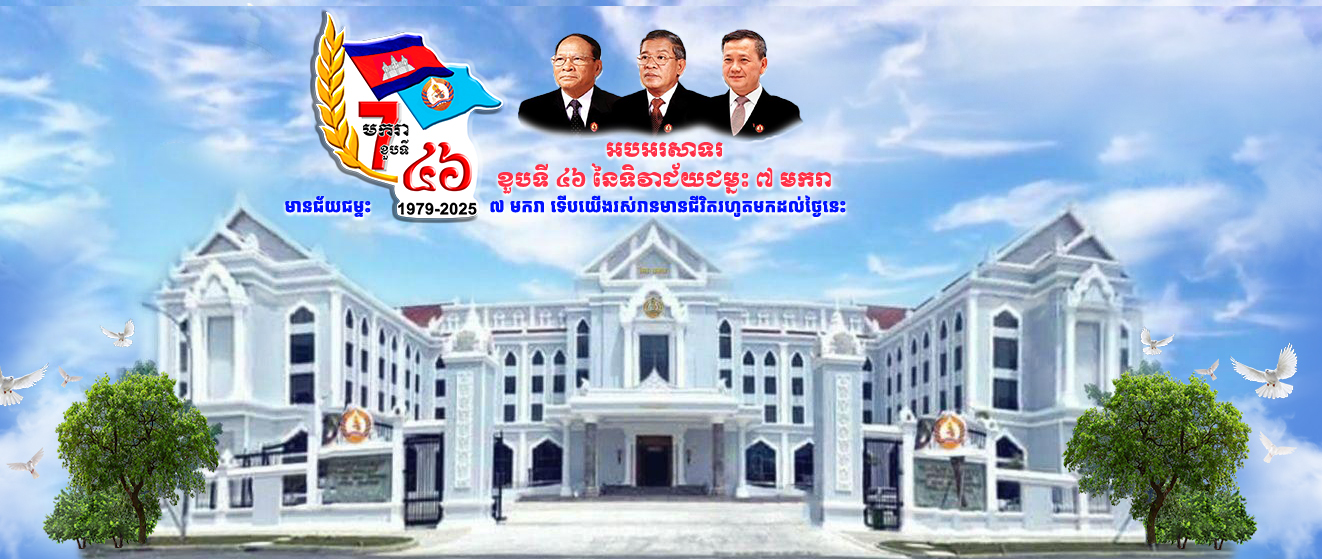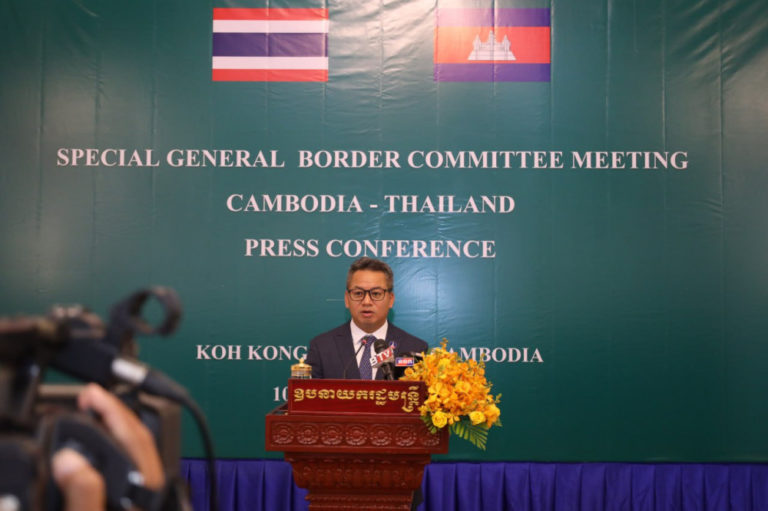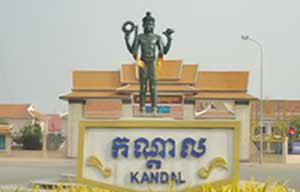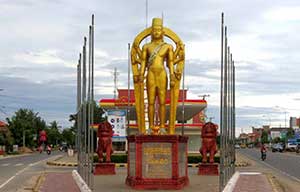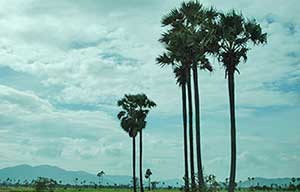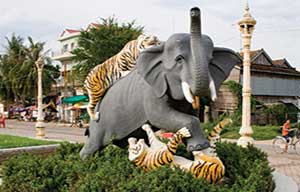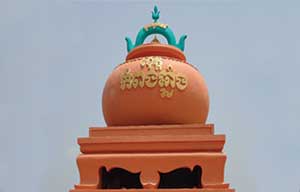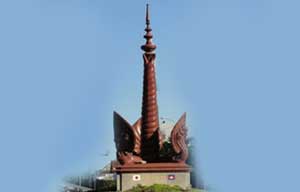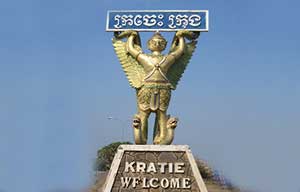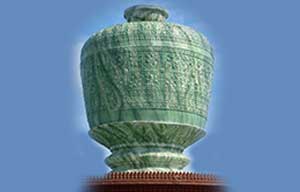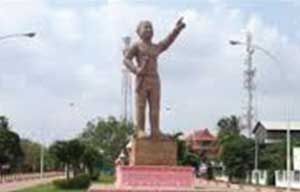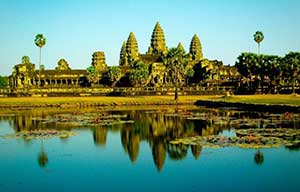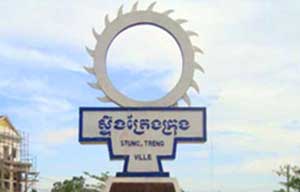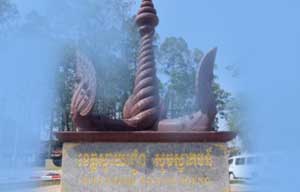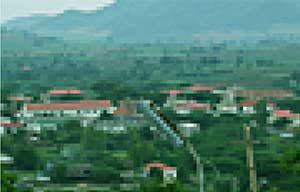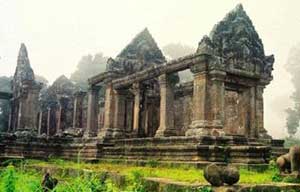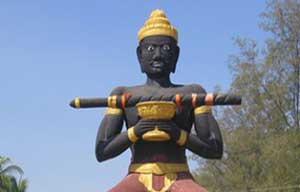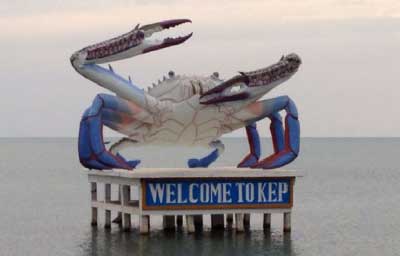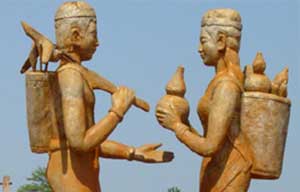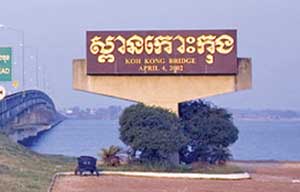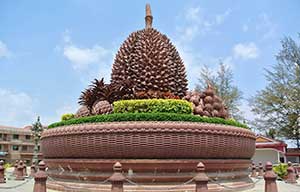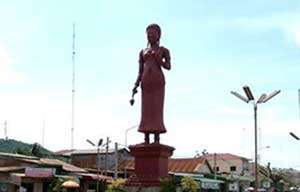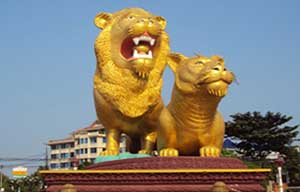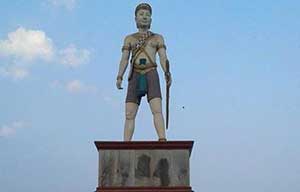The first Special Meeting of Cambodia-Thailand General Border Committee (GBC) hosted by Cambodia in Koh Kong province this morning was concluded with positive outcomes laying out practical steps needed to fully and effectively implement the ceasefire arrangement.
The meeting was co-chaired by H.E. General Tea Seiha, Deputy Prime Minister and Minister of National Defence of Cambodia, and H.E. General Nattaphon Nakphanit, Acting Minister of National Defence of Thailand.
At a press conference following the meeting, H.E. General Tea Seiha said Both sides agreed on the urgent need to de-escalate tensions through the removal of heavy and destructive weapons back to their respective normal military installations. To achieved the abovementioned objectives, both teams will meet within three weeks to develop a detailed, practical, and step-by-step action plan. This plan will be implemented under the observation and verification of the ASEAN Observer Team (AOT) whose Terms of Reference (TOR) for its establishment were agreed in principle and are awaiting the approval from both countries’ governments. In the meantime, the Interim Observer Team (IOT) mechanism will remain in place to ensure the effective ceasefire implementation.
Both sides also underlined the importance of regular communication between military regions (Cambodia), army areas (Thailand), and border units, with a firm commitment to resolve issues peacefully and prevent clashes, he said, adding that strengthening communication at all levels is essential to build mutual trust and promote good neighbourliness.
In addition, he continued, the two sides agreed that refraining from spreading false information, fake news, accusations, and harmful rhetoric is vital to ease tensions, reduce negative public sentiment, and foster an environment conducive to peaceful dialogue.
According to H.E. General Tea Seiha, the discussion also addressed several other important issues, including the timely and appropriate return of the 18 Cambodian soldiers currently held by Thai forces; Japan’s proposal to study the feasibility of reopening border checkpoints to facilitate the transport of essential goods and maintain critical regional supply chains; as well as cooperation in preventing and combating cross-border crimes such as arms, drug, human and wildlife trafficking, forced labour, smuggling, and illegal crossings. To this end, the Ministries of Interior and the National Police of both countries have been tasked with formulating a joint action plan.
On humanitarian demining, both sides agreed to establish within one week a Joint Coordinating Task Force, led by the GBC Secretariats and with the participation of Cambodian Mine Action Centre (CMAC) and Thailand Mine Action Centre (TMAC), to determine and agree on priority areas and to coordinate the planning and implementation of demining activities. Standard Operating Procedures will be developed, and taking into account each side’s criteria, conditions, and positions, the Task Force will begin identifying pilot border areas for action within one month. This will contribute directly to socio-economic development and the protection of civilian lives.
On border management, both sides recognised the Joint Boundary Commission as the key mechanism to address joint survey and demarcation issues, and agreed to solve any incidents along the border aiming for better livelihood of the people from both countries.
The Second Special General Border Committee Meeting will be held within 30 days, with Thailand as the host.
Before concluding, H.E. General Tea Seiha reiterated Cambodia’s firm commitment to maintain and elevate peace, stability and cooperation with all neighbouring and friendly countries.
